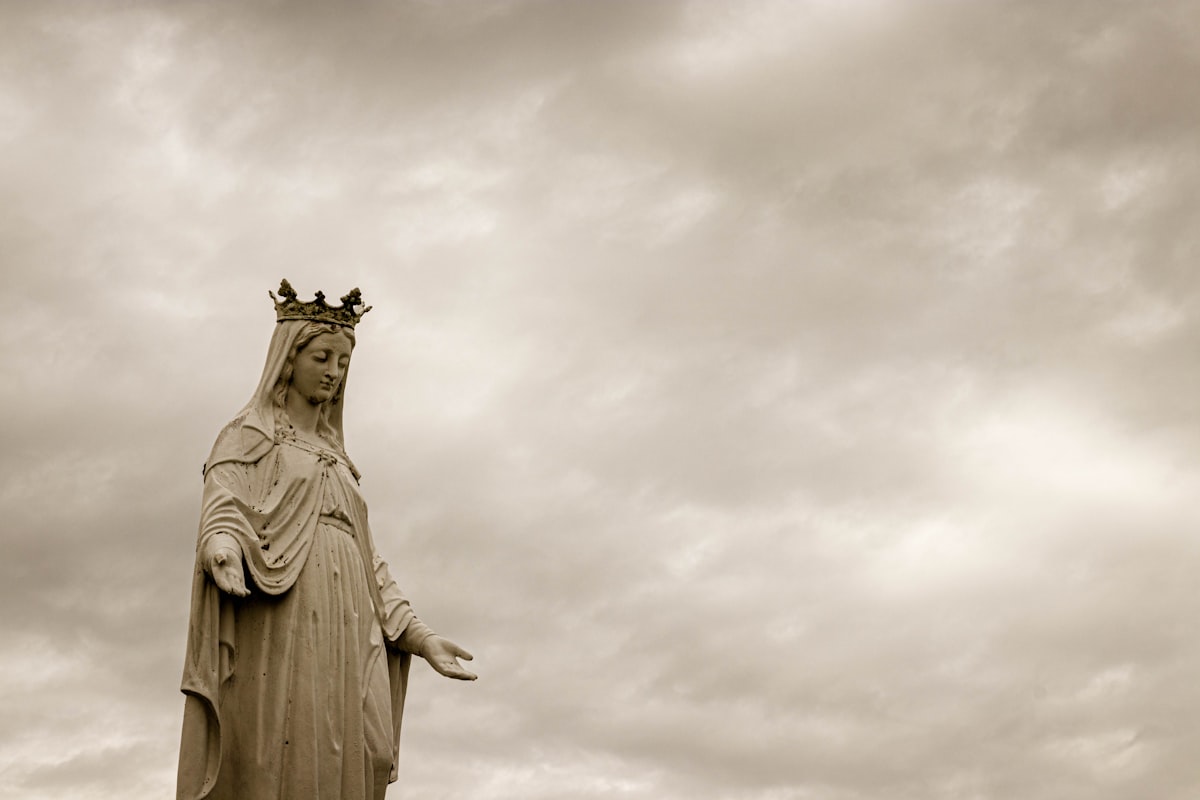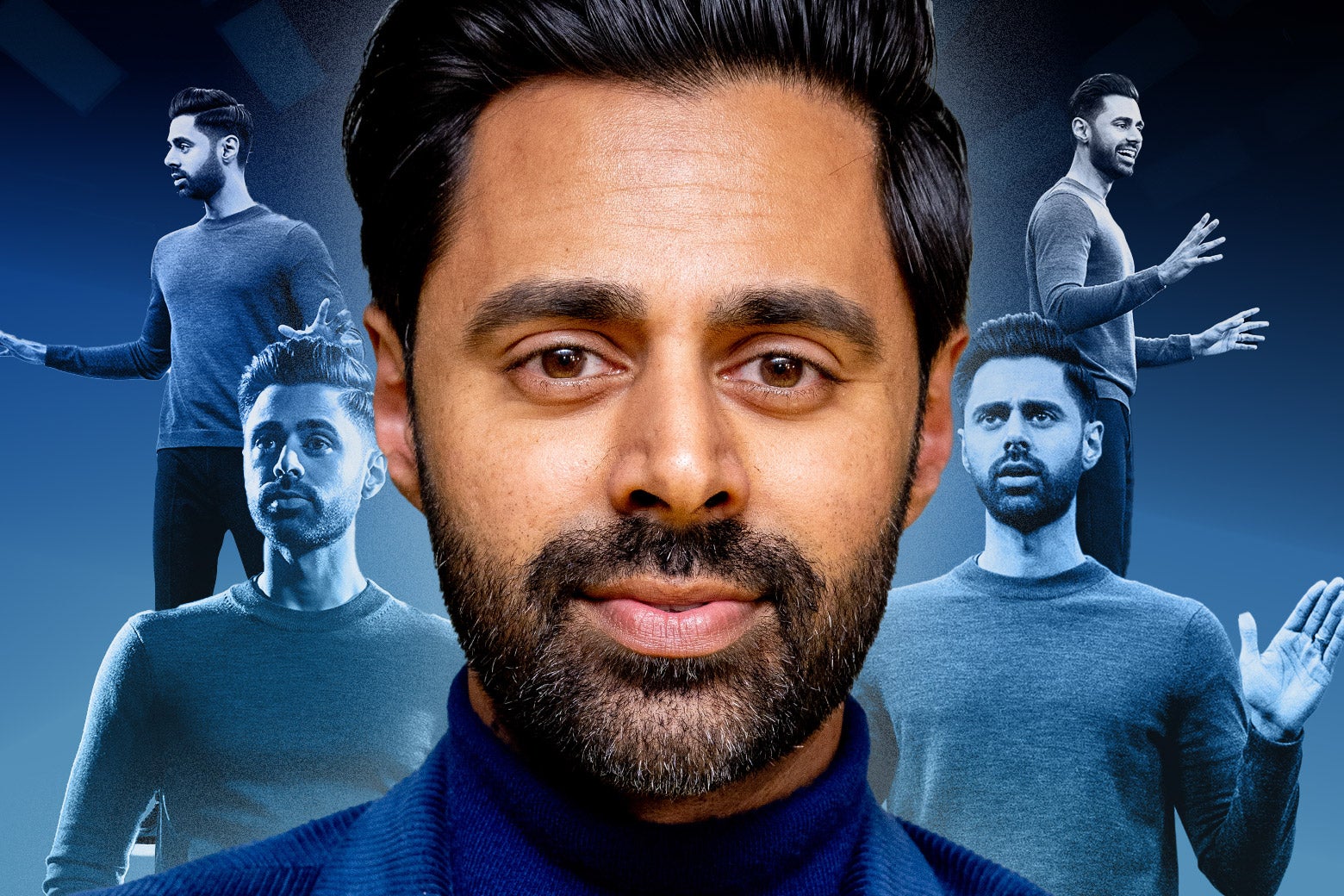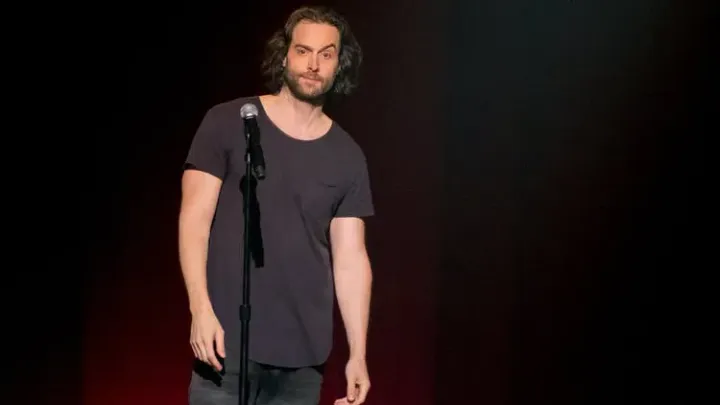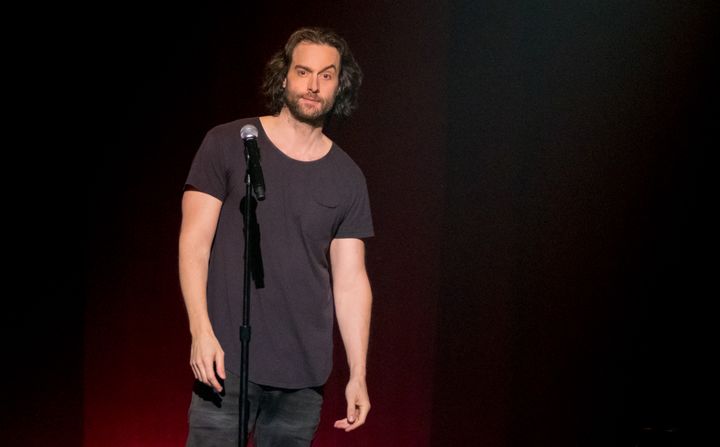A Wednesday Evening Roundup
New York Comedy Festival recs, Hasan Minhaj revisited, my cameo in Chris D'Elia's new special, and more.

A minor scare the other morning: there was a shooting outside my window. I slid from my chair to the floor and led the dog to the back of the apartment; this was a hazard of first-floor living I failed to consider when I moved in a few months ago. Fortunately, apparently, no one was hurt. Cops scoured the block for hours but I never saw an ambulance. What happened, as I learned today, is that a pair of gunmen fired at each other and ran off. In the immediate aftermath I took my neighbor's advice to download Citizen, the "safety app," for updates on the matter, none of which were particularly informative: it happened, they fled the scene, they haven’t been found, a helicopter's en route to search the rooftops, there's a helicopter's searching the rooftops. After an hour or so the updates stopped coming and other local calamities overtook the timeline, fires and assaults and vehicles colliding. There were live streams, chats, an interactive map, the whole thing gamified like every other app, designed to suck you (me) in and keep you (me) there. I could see how easy it would be to obsess over these things, to reflexively check for threats every time I leave the apartment. But I don’t want to be paranoid about local crime. I am already paranoid about enough! Maybe they can make an app that gamifies having a sense of proportionality and scale—now that could really help people out. Anyway, I’m glad to be alive.
The New York Comedy Festival is in full swing. I’ll admit I haven’t been in a laughing mood lately, but I’m still looking forward to a few shows: Patti Harrison, Anthony Jeselnik, Ike Ufomadu, we’ll see what I feel like on Sunday. If you’re in the city and inclined to patronize comedy, I might also recommend A Crazy Amazing Friendship, Kate Willett, Joel Kim Booster, Todd Barry, Sophie Zucker, Anna Seregina, Atsuko Okatsuka, Marcia Belsky, and Mitra Jouhari.
Here is one of the funniest things I’ve seen in a while. Rob Schneider isn’t mad, he actually converted to Catholicism and forgives you:
Toward the end of his post, Schneider told his followers, “I am a new convert to Catholicism.” The comedian indicated that his new faith had changed his perspective on life, as he offered “my apology for my lack of Christ’s forgiveness to my fellow man.”
“I was so angry at the people who shut down the schools and indeed the world and coerced others to do things against their will which hurt many people deeply,” he recalled. “I offer my unconditional forgiveness and amnesty.”
Schneider outlined several examples of people he believes need forgiveness without naming them directly. “How can I stay mad at the famous singers who would not let others into his Broadway show unless they had an experimental jab,” he asked, referring to the COVID-19 shots. “I will never forget how kind he was to me and my friends when he was the musical guest on SNL.”
“How can I continue to hold a grudge against the actor who shamed people like me but has been such a great example for other actors to never give up and keep fighting for their dreams. How can I still be mad at the lovely actress that said she could no longer be friends with people like me who didn’t ‘get’ it, knowing how incredibly kind she is with every child she meets.”
I’m late to this, but since a few people have written in about it: a couple weeks ago Hasan Minhaj released a 21-minute video responding to the New Yorker article about him. I’ve been a bit surprised to see it described as a comprehensive refutation. To me it seems like mostly re-contextualization and spin (and a fair amount of confirmation), though I think Minhaj is right that the author erroneously paraphrased a quote in the section about his prom story. Other than that, he provides information that either isn’t in conflict with the article or which deals with more normative concerns it raises, like whether he owed a “heads up” to the FBI informant he fabricated a story about.

I’d break the video down for you in more detail, but I think Slate’s Nadira Goffe (above) and Nitish Pahwa (below) and have already done so effectively:
by his own admission, Minhaj addresses three parts of the story—and doesn’t speak to *anything* regarding 1) his repetition of stories he admits were exaggerated in *journalistic interviews* 2) the tape where Malone directly asks him, “But it didn’t happen to you,” or … pic.twitter.com/oZmlzuiqBB
— Nitish Pahwa (@pahwa_nitish) October 28, 2023
3) his cynical use of Jamal Khashoggi’s murder on *two separate occasions*, one of which involved *his own accusation against a public figure.* I’m no Jared Kushner fan, but frankly there’s enough out there to call out his human rights/Mideast foibles without making anything up… pic.twitter.com/7vqEAAAkND
— Nitish Pahwa (@pahwa_nitish) October 28, 2023
5) trust me, I’m no fan of the FBI, but Minhaj never said in the video that his purported "inspiration" for the Brother Eric story, or the fact that his daughter never went to the hospital, was untrue. further… pic.twitter.com/LDlsEofRbc
— Nitish Pahwa (@pahwa_nitish) October 28, 2023
I’m not sure why so many are taking Minhaj’s word on this outright, especially considering he never directly responds to this "interaction," and Malone explicitly included both his claims that he got in touch with Bethany before his special and that the comms were “friendly”… pic.twitter.com/voqitJ892P
— Nitish Pahwa (@pahwa_nitish) October 28, 2023
As for me, I have sympathy for Minhaj. I agree that it’s unfair for him to get this sort of attention when other comedians don’t, but I’m not sure it follows that he therefore doesn’t deserve this sort of attention. As I wrote last month, I think most famous comics deserve it. More pertinently, the guy admits he made up a lot of shit in his autobiographical standup comedy act! The story is concerned with the questions raised by his own artistic choices, and to my mind these questions are significant: what is truth in comedy? How important is factual truth in traditional standup relative to infotainment? How does one earn moral authority, and how does one wield it responsibly? What ethical duties do artists owe the people they tell stories about? What exactly went on at The Patriot Act, and how does it inform our understanding of Minhaj as a comedian and a boss?
If I had my way, we’d all be much more comfortable interrogating these issues, whether for the comedians we love or the comedians we hate. It may be the case that Minhaj's fabrications aren't all that far outside the norm in comedy, but they are still worth examining in their own right. Comedy is a major art form. Minhaj is a major artist. This stuff matters. And if indeed lots of other confessional standups do what he does, then I'd suggest it's even more important to ask whether it's really a good thing to do.
I suspect that much of the post-video backlash to the article stemmed from a perception that it was a bad-faith effort to cancel Minhaj, but I think the piece is much more fair-minded—much more inquisitive—than that. It's highly conscious that he works in different modes with different relationships to the truth, and it gives him ample space to navigate these differences on-the-record. (Again, there does appear to be a fuckup in the prom story, which the New Yorker ought to clarify.) The narrative that it cost him The Daily Show, furthermore, is premature: he is reportedly still in the running to host the show, whereas in August he reportedly “ha[d] been eyed as a leading candidate,” which I’m not sure means very much at all. It's not clear that anything has meaningfully changed for him; they were looking at other candidates before and they're looking at other candidates now.
But suppose he has lost standing with the network in some real sense—is that so unfair? The guy lied about his kid getting exposed to anthrax; his last TV show settled a gender discrimination claim by its employees. Whether someone with his record deserves that sort of power seems a perfectly reasonable question to ask.
I’ll take this as a win: an article I published 22 months ago about Chris D’Elia’s return to comedy somehow found its way to the man himself, and what’s more, it moved him so deeply that he wrote a whole joke about it in his new special:
What can I say. The man’s funny!



